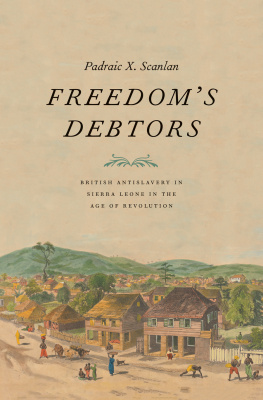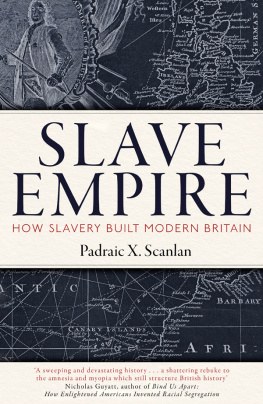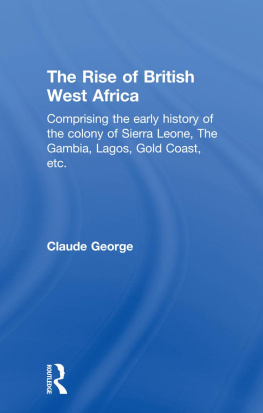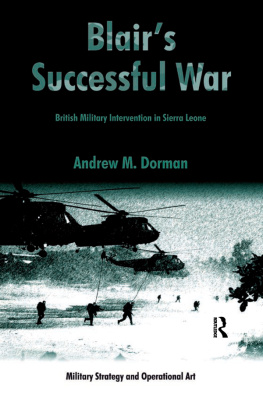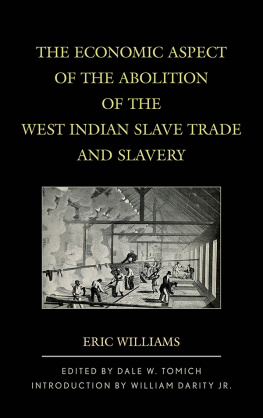Freedoms Debtors

THE LEWIS WALPOLE SERIES
IN EIGHTEENTH-CENTURY CULTURE AND HISTORY
The Lewis Walpole Series, published by Yale University
Press with the aid of the Annie Burr Lewis Fund, is dedicated
to the culture and history of the long eighteenth century (from
the Glorious Revolution to the accession of Queen Victoria). It
welcomes work in a variety of fields, including literature and
history, the visual arts, political philosophy, music, legal history,
and the history of science. In addition to original scholarly work,
the series publishes new editions and translations of writing from
the period, as well as reprints of major books that are currently
unavailable. Though the majority of books in the series will
probably concentrate on Great Britain and the Continent, the
range of our geographical interests is as wide as
Horace Walpoles.

Published with assistance from the Annie Burr Lewis Fund.
Copyright 2017 by Yale University.
All rights reserved.
This book may not be reproduced, in whole or in part, including illustrations, in any form (beyond that copying permitted by Sections 107 and 108 of the U.S. Copyright Law and except by reviewers for the public press), without written permission from the publishers.
Yale University Press books may be purchased in quantity for educational, business, or promotional use. For information, please e-mail (U.K. office).
Set in Fournier MT type by IDS Infotech Ltd.
Printed in the United States of America.
Library of Congress Control Number: 2017935589
ISBN 978-0-300-21744-5 (hardcover : alk. paper)
A catalogue record for this book is available from the British Library.
This paper meets the requirements of ANSI/NISO Z39.481992 (Permanence of Paper).
10 9 8 7 6 5 4 3 2 1
For Catherine
[The slave trade] has now become, in this country at least, the
object of universal execration how was this extraordinary
revolution effected? By examination, inquiry, evidence.
Zachary Macaulay, East and West India Sugar (London, 1823)
As for stopping the Slave Trade, I see it must
be done partly by force.
John Kizell to Governor Edward Columbine,
Sierra Leone, 15 November 1810
Contents
Acknowledgments
This book began in the History Department at Princeton University. My first thanks are to Linda Colley. Her command of British culture and politics in the long eighteenth century, and her incisive criticism and editorial instincts, made this book, and the dissertation from which it emerged, sharper, clearer, and more serious. I hope her influence is obvious; her work is a model of scholarship and writing which I try to emulate. Jeremy Adelman, Lauren Benton, Christopher Leslie Brown, and Emmanuel Kreike helped me to find threads in my dissertation that might eventually hold together as a book. I hope that this looks something like what they imagined. Mariana Candido, David Cannadine, Michael Gordin, Dirk Hartog, Bhavani Raman, and Wendy Warren also generously offered their time and expertise at various stages of the project. I started thinking about the contradictions of British radicalism and reform in the age of Atlantic revolutions long before I met Charles MacCarthy in the archive. As an undergraduate at McGill, I read E. P. Thompson on miners, potters and cutlers reading Rights of Man and was mesmerized by the possibilities of a radical British politics cut down by Tory reaction, and buried under the starchy reforms of the Victorians. That lost world of the 1790s, although it may well be a fantasy, still nourishes me. But it would never have occurred to me that I might be able to think and write about the past for a living had it not been for the encouragement of Brian Cowan and Elizabeth Elbourne, who remain mentors, colleagues, and friends.
I wrote this book while I spent two good years as a Prize Fellow in Economics, History and Politics at Harvard University. Emma Rothschild has been a stalwart supporter, and her unparalleled understanding of the commercial world of the eighteenth century has changed the way I think about the economic history of everyday life. The Senior Fellows, and especially Sunil Amrith and Walter Johnson, provided good counsel when I needed it. I am also grateful to my all of my colleagues in the fellowship, and especially to Fahad Bishara, Diana Kim, Anne ODonnell, Brandon Terry, Kirsty Walker, and Alexia Yates. I am very pleased to be able to stay on as a Research Associate at the Joint Centre for History and Economics at Cambridge and Harvard to continue the conversations I started as a Fellow.
My research was made possible by the support of the History Department, the Program in Canadian Studies, and the University Center for Human Values at Princeton University, and by the Program in Economics, History and Politics and the Center for History and Economics at Harvard University. The Department of International History at the London School of Economics generously supported the finishing touches of my research and writing. I am grateful to the librarians and archivists at the University of Illinois at Chicago Special Collections, the Nova Scotia Archives, and the Templer Study Centre at the National Army Museum for helping me to navigate their fascinating collections. Abu Koroma at the Sierra Leone Public Archives in Freetown helped me to understand the records of one of Britains most interesting and overlooked colonial experiments. Phil Misevich guided me through the logistics of getting to Sierra Leone, and put me in touch with the indomitable Momoh Taziff Koroma, who opened his home in Freetown to me.
I was invited to present versions of the arguments in this book to the History and Economics Seminar at Cambridge University, the History Department at the University of Georgia, the British History Seminar at McGill University, the Eighteenth-Century Seminar at Princeton University, and the Harriet Tubman Institute for Research on Africa and its Diasporas at York University. I am grateful to those audiences for comments and suggestions. Early versions of the arguments of this book have appeared in other forms: The Rewards of Their Exertions: Prize Money and British Abolitionism in Sierra Leone, 18081823 (Past & Present 225:1 [2014]), and The Colonial Rebirth of British Anti-Slavery: The Liberated African Villages of Sierra Leone, 18151823 (American Historical Review 121:4 [2016]). I am grateful to the editors of these journals for their permission to print some of the material from those articles here, and for their insights into the project as a whole. Thanks also to several anonymous reviewers for comments that helped to clarify both the more narrow historiographic points of the articles, and the wider thrust of this book.
I am also grateful to an extended family of historians whose friendship, support, and solidarity have helped me to navigate a peripatetic, often unstable professional life. I first got to know Bronwen Everill and Richard Anderson in the Freetown archives; they helped me to understand the history of early Sierra Leone and the world of the Liberated Africans, and have saved me from all kinds of unforced errors. Christopher M. Florio has been a probing critic and boundless source of insight into the history of slavery and emancipation in the nineteenth-century United States. Greg Childs, Henry Cowles, Rohit De, Will Deringer, Zack Kagan-Guthrie, Jamie Kreiner, Kyrill Kunakhovich, Sarah Milov, Julie Stephens, Melissa Teixeira and Nurfadzilah Yahaya also provided suggestions, encouragement, and advice on the manuscript. Thanks also to Laura Davulis (now at the Naval Institute Press) and Jaya Chatterjee at Yale University Press for their confidence in this project, to Jeff Schier for careful copyediting, and to two anonymous readers for their thoughtful comments.
Next page
